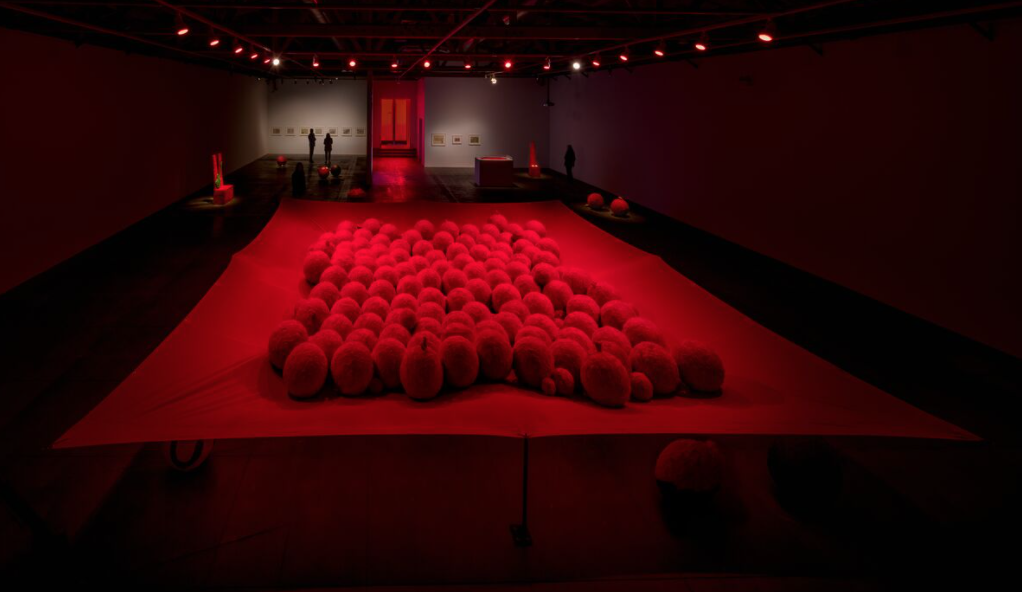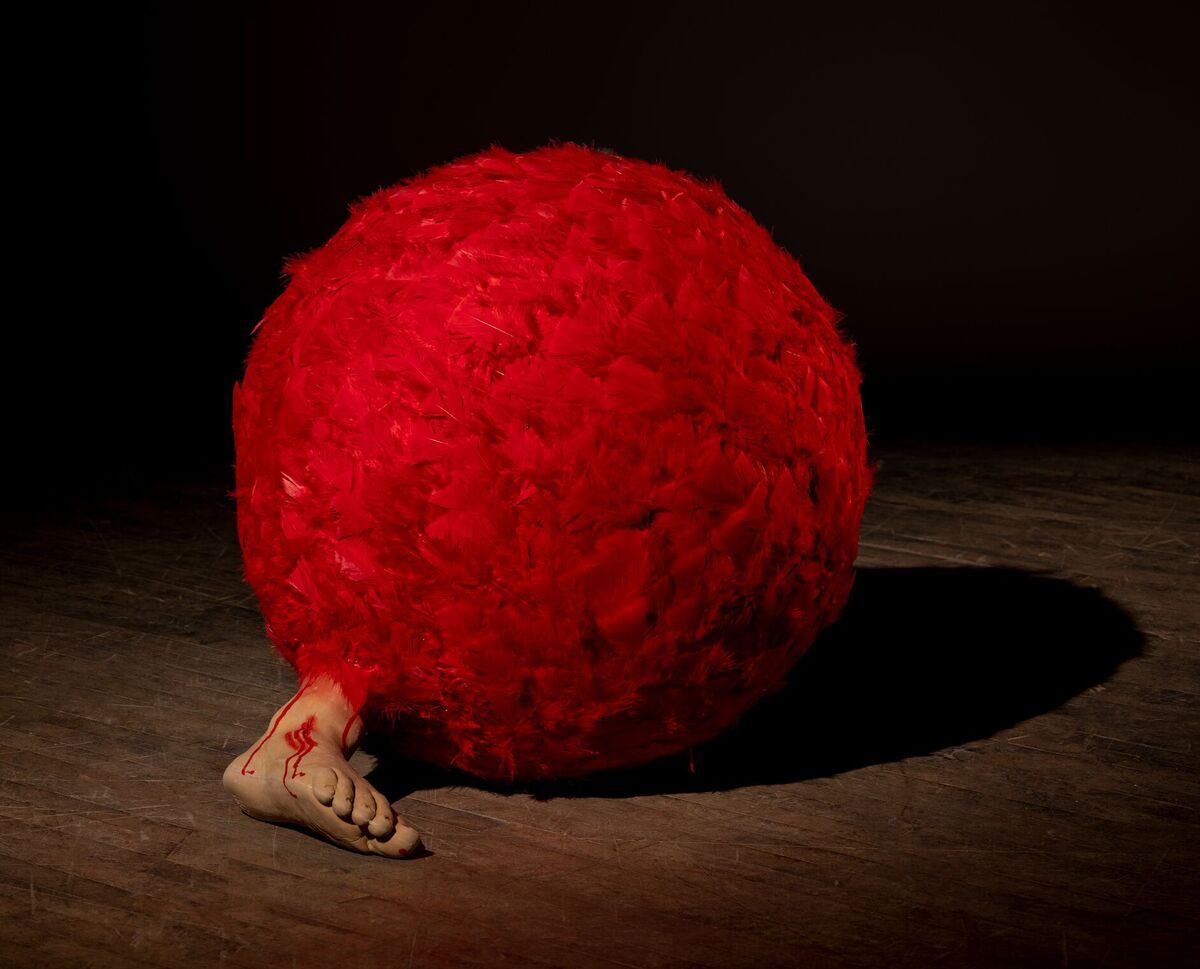Red is the color of extremes, especially the Cadmium Red Deep of Lygia Pape’s posthumous show “Tupinambá” up at Hauser & Wirth, Los Angeles. The same red as both Valentine’s Day ornamentation and oxidized blood—red represents birth, seduction, war, death and a myriad of other extremes. In the context of Pape’s Tupinambá sculptures, red represents hunger, passion, memory and the act of devouring.
The show is composed of three separate parts which reverberate off of each other. When entering the gallery space, the first work to view is a single-channel film entitled Catiti-Catiti (1974). This black and white film is experimental in nature and acts to connote a setting (Brazil) and set a tone vis-à-vis the act of devouring—which is deeply explored in the following aspects of the show.

The namesake and main feature of the show is Pape’s Tupinambá (2000) series which consists of spheres covered in red feathers. Protruding out of the spheres are recognizably human body-parts such as feet, breasts, hands and bones. This series is indicative of Pape’s Brazilian roots, specifically alluding to the indigenous Tupinambá peoples of the region. In ritualistic and cultural practices, the Tupinambá peoples devoured the flesh of others as a way to physically assimilate the ‘other’ within their own bodies. In one piece, Concerto Tupinambá, there are two chairs jointly covered in red feathers creating a sort of plinth for a green electric guitar. This piece acts to jolt the viewer into asking who’s devouring who? Surely the European settlers enacted a devouring of indigenous peoples and resources when plundering Brazil?
Sitting subtly between the overt and inert is the last segment of the show taking the form of the Desenho (Drawing) series, which are “cinematographic studies” bridging gap between Catiti-Catiti and the Tupinambás. Pape collages film stills on gridded paper and adds layers of expressive mark-making seemingly made by colored crayons. The show “Tupinambá” is evocative and harrowing, reifying two disparate worlds and histories as it conjures up the ghosts of a haunted past.
Lygia Pape: Tupinambá
Hauser & Wirth, Los Angeles
April 24 — August 1, 2021


